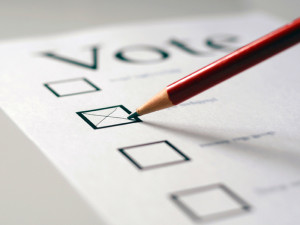‘Ethnic vote’ influences NSW poll
 Sentiment among ethnic groups in metropolitan Sydney may have had a significant effect on the outcome of the recent NSW State Election, experts say.
Sentiment among ethnic groups in metropolitan Sydney may have had a significant effect on the outcome of the recent NSW State Election, experts say.
NSW Labor leader Luke Foley may have lost up to 10 percentage points in his multicultural seat of Auburn, in Sydney’s west, reflecting a negative swing that bucked the statewide trend, according to sociologist and multicultural expert Professor Andrew Jakubowicz.
Professor Jakubowicz of the University of Technology, Sydney, also says many Chinese voters returned to Labor’s fold after deserting the party at the last election – a trend that helped Labor win the seats of Strathfield and Rockdale.
Before the March 28 election, the influential Lebanese Muslim Association criticised Mr Foley and backed his Liberal opponent, Ronney Oueik, after Labor chose not to preselect the group’s controversial preferred candidate Hicham Zraika.
Labor held the seat by 7.2 per cent. But there was a 1.4 per cent swing towards the Liberals in Auburn – in contrast to the average swing of about 9 per cent to Labor across the state.
Professor Jakubowicz said Labor’s muted showing in Auburn was due to “the trouble that Foley found himself in” with local ethnic organisations, saying the impact “probably knocked about 10 percentage points off the vote” for Labor.
“It’s really extraordinary that a prospective premier goes into a seat and actually loses votes,” he said, adding that “Labor’s Lakemba candidate, Jihad Dib, was endorsed by the LMA and won a hefty swing,” he said.
Fairfax media reported that Mr Foley’ perceived affiliations with Israel and Armenia also prompted discontent from some constituents.
Professor Jakubowicz said Labor’s wins in Strathfield and Rockdale were likely helped by Chinese community votes. This is despite Labor and the unions questioning the appropriateness of potential Chinese involvement in the state’s electricity poles and wires lease.
“I think because it happened so late [in the campaign], there was no organisational pressure from the Chinese community that might have had an impact,” he said.
Professor Jakubowicz said that in Seven Hills the local Indian press strongly promoted successful Liberal candidate Mark Taylor over his Labor rival, Susai Benjamin.
But others, including ABC election analyst Antony Green, rejected the notion that ethnic groups vote in blocs, saying many other variables influence voting patterns.
Mr Green said the swing against Labor in Auburn could have been affected by other factors, including demographic changes and the retirement of longstanding Labor MP Barbara Perry.
He said the Strathfield and Rockdale results were more likely due to a general swing back to Labor, rather than specific support from the Chinese community.
Mr Green noted that in Kogarah, which also has a large percentage of Chinese voters, the swing to Labor was far smaller.
Ethnic Communities Council of NSW chair Peter Doukas said it was a “generalisation to say that a single community as a bloc can vote together”.
With around 73,000 new migrants added to the population of New South Wales in 2014, many were voting for the first time in Australia in the recent NSW state election.
NSW remains a popular destination for many new migrants, with many arriving from India and China in recent years.
Despite the continuing flow of new migrants entering the state, Professor Jakubowicz says there’s been little debate in recent Australian elections about multicultural issues.
“Even with the intergenerational report with significant social challenges in almost every part of the whole of life cycle that people face, multicultural issues are not on the agenda,” he said.
Professor Jakubowicz said key multicultural issues ranged from access toeducation, aged care and health through to political rights to commemorate unresolved overseas conflicts.
Multiculturalism has long included the principle that groups can hold onto their own cultural and political values and views, but they do not introduce their unresolved post-wartime hostilities into Australian political life.
Laurie Nowell
AMES Senior Journalist












